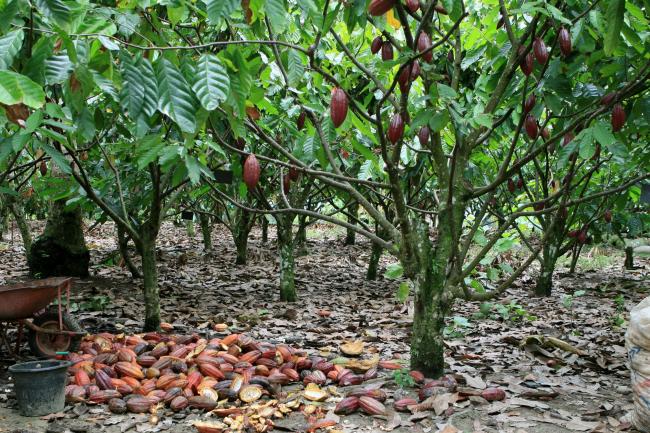(Bloomberg) -- Demand from Asia’s growing legions of chocoholics has outpaced the ability of local farmers to supply cocoa beans, prompting a surge of shipments into the region from Africa and South America.
Indonesia, the top producer and processor in the area, imported about 240,000 metric tons of beans last year, a record, and may buy more in 2019, said Piter Jasman, chairman of the country’s Cocoa Industry Association. Malaysia boosted shipments 10% to 345,000 tons last year, cocoa board data show.
Bean output in Indonesia has shrunk by half in the past decade as farmers battle crop disease and aging trees, and switch to more profitable crops. That’s turned the country into a net bean importer from major exporter as processing capacity expanded, with overseas purchases more than doubling in five years.
In Malaysia, there’s a similar tale, with output dwindling to less than 1,000 tons from around 100,000 tons two decades ago, according to board data, as farmers turn to palm oil. The steep drop has prompted processors to hunt for beans elsewhere, including Asia’s biggest grinder Guan Chong Bhd., which is thinking of moving plants closer to growers in Africa or South America.
Back in Indonesia, plans to turn the industry around include a possible national program to boost bean production to 600,000 tons by 2024, a crop that would be big enough to meet local demand and exports, the Indonesian Cocoa Association, a growers’ group, said last year.
“Hopefully, there’ll be no further decline in output because the Agriculture Ministry is funding a program to help farmers revitalize crops with special fertilizers and superior seeds,” said Jasman, also founder of top grinder PT Bumitangerang Mesindotama, or BT Cocoa. He sees output staying at 270,000 tons this year, with grinding at 400,000 tons, after allowing for exports.
Ice Cream
Global players have been investing in Indonesia to position themselves to meet rising Asian demand. The latest was Olam International Ltd., which spent $90 million earlier this year to buy BT Cocoa. By 2020, Asia is expected to be the world’s largest market for cocoa powder, used in products including cookies, chocolate drinks and ice cream.
Processing of beans in Asia rose more than 25% in the past four years to about 780,000 tons in 2018, according to the Cocoa Association of Asia, which compiles data from Malaysia and members in Singapore and Indonesia. Grindings were up almost 10% on the year in the first quarter. Curious, and increasingly wealthy, people are consuming more chocolate confectionery, bakery items and drinks, the group said.
The Asian market for chocolate confectionery has grown by a compound annual rate of 5% in five years, as regional economies and population expand, according to Anthony Chien, research analyst at Euromonitor International.
(Updates to add Euromonitor comment in final paragraph.)
